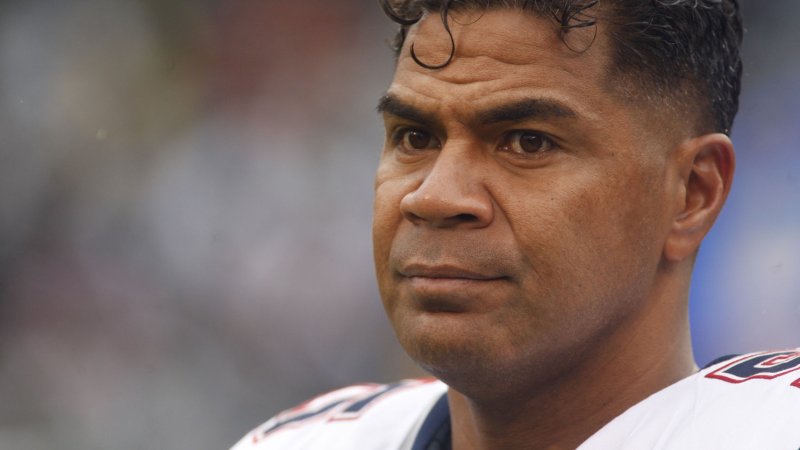In this file photo, New England Patriots linebacker Junior Seau waits for a game against the Oakland Raiders at the Coliseum in Oakland, California on December 14, 2008. Seau was found shot to death at his home in Oceanside, California on May 2, 2012. He was 43. UPI/Terry Schmitt/Files |
License Photo
BETHESDA, Md., Jan. 10 (UPI) -- The NFL's Junior Seau suffered a debilitating brain disease brought on by head impact during his football career, neurological analysts said.
Seau's family donated his brain to researchers at the National Institutes for Health, who are conducting ongoing research on traumatic brain injury to football players, after his suicide in May 2012 at age 43. He retired from football in 2010.
In a statement, the NFL Players Association said, "The only way we can improve the safety of players, restore the confidence of our fans and secure the future of our game is to insist on the same quality of medical care, informed consent and ethical standards that we expect for ourselves and for our family members. This is why the players have asked for things like independent sideline concussion experts, the certification and credentialing of all professional football medical staff and a fairer workers compensation system in professional football."
The statement said, "Our players deserve the best care, and we will fight to hold the NFL and the clubs accountable for providing it."
A team of independent researchers, who were unaware the brain tissues they studied were those of Seau, concluded he suffered from chronic traumatic encephalopathy (CTE) a degenerative disease typically caused by blows to the head, ABC News and ESPN reported Thursday.
"What we found in Junior Seau's brain was cellular changes consistent with CTE," said Dr. Russell Lonser, chairman of the Department of Neurological Surgery at Ohio State University.
Patients with the condition, which can only be diagnosed after death, display symptoms "such as impulsivity, forgetfulness, depression, sometimes suicidal ideation," he added.
Lonser led the study of Seau's brain while with the National Institutes for Health.
More than 30 former professional football players have been diagnosed with CTE in recent years, and last year 4,000 players joined a class-action lawsuit against the National Football League over its alleged failure to protect players from brain injuries, ABC News and ESPN said.
Seau spent most of his career with the San Diego Chargers before being traded to the Miami Dolphins. He finished his career with New England.















